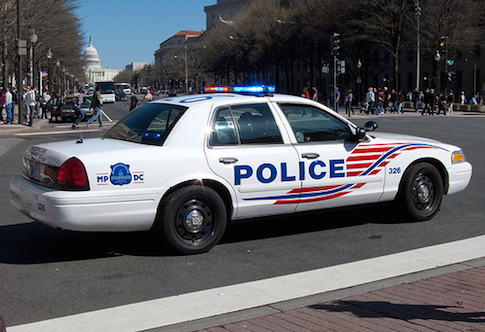The D.C. Council passed a bill Tuesday reforming asset forfeiture laws in the District of Columbia following several investigative news reports detailing abuse and civil rights concerns regarding the practice.
The council voted unanimously to reform civil asset forfeiture in the District, a practice whereby police can seize citizens’ cars, houses, and other property, even if they have not been charged with a crime. Under the new law, assets seized by police will go to the city's general fund, rather than straight to the department.
The bill will also give citizens greater leverage in asset forfeiture cases by making the appeals process easier to understand, reducing bond requirements to regain property, and creating a requirement to notify property owners within 10 business days of a seizure.
A Washington Post investigation released Saturday reported that the D.C. police planned its budget years in advance with asset forfeiture proceeds in mind, despite federal guidelines.
According to public records obtained by the Post, D.C. officers have made more than 12,000 seizures, including 1,000 cars, under District and federal laws since 2009. Most of those seizures were for petty amounts of cash under $200.
The numbers comport with other cities that have come under the spotlight for their asset forfeiture practices. Civil rights advocates say asset forfeiture’s perverse incentives lead police to target individuals for their property and create burdensome legal processes
"All across the nation, law enforcement agencies are directly benefiting from forfeiture," Council member Tommy Wells, who led the efforts to pass the bill, told the Post. "In those places, forfeiture proceeds go directly to the law enforcement entity, creating at best the appearance of a conflict of interest, and at worst, an unchecked incentive for slush funds."
The effort to reform asset forfeiture in the District gained steam last year when opponents filed a class-action lawsuit challenging a city requirement that vehicle owners post bonds of up to $2,500 before they were permitted to challenge seizures.
Law enforcement officials say asset forfeiture is a vital tool to disrupt organized crime, especially drug traffickers.
"Enacting this bill would almost certainly decrease the number of successful forfeiture cases, which would lead to a loss of significant forfeiture revenues," D.C. Attorney General Irvin B. Nathan told the D.C. Council last year.
The bill delays redirecting funds received through a separate federal program that distributes asset forfeiture proceeds until 2018, due to the Metropolitan Police Department already having budgeted for that revenue for the next four years.
"With this exception, the bill goes a long way to reforming the District’s civil-forfeiture laws," said Darpana Sheth, an attorney at the Institute for Justice, a public interest law firm that is heavily involved in asset forfeiture challenges and litigation. "We’re hopeful that it will serve as a blueprint for other jurisdictions across the country that recognize that the perverse profit incentive fueling civil forfeiture is turning our nation’s cops into robbers."
